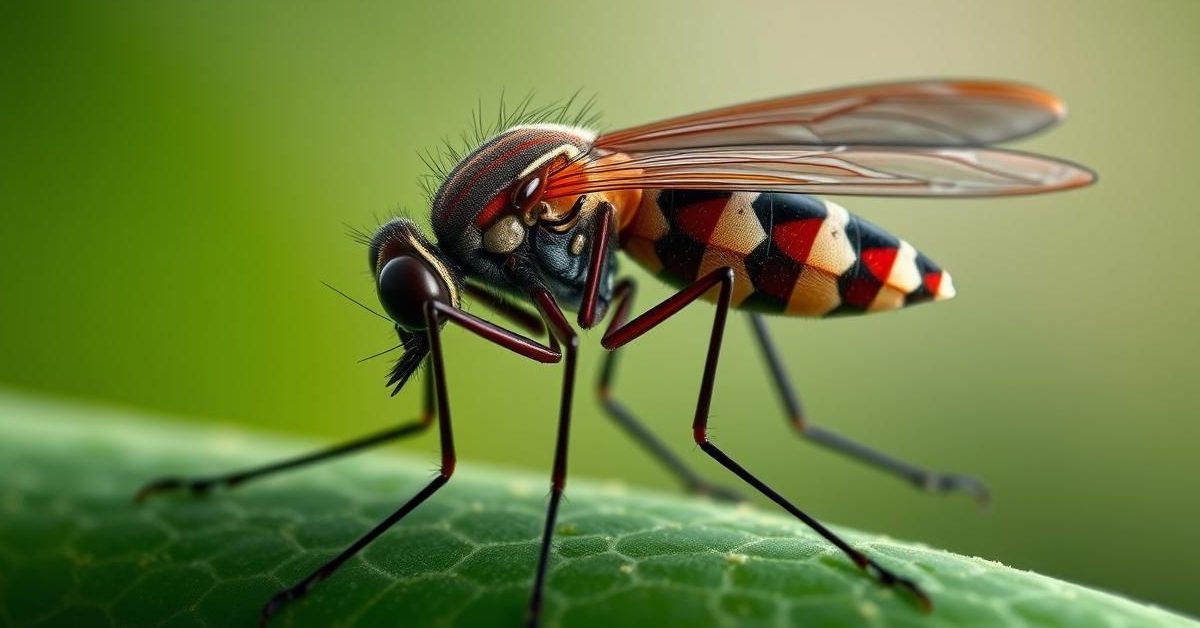The Indian Council of Medical Research (ICMR) is seeking partners to develop and commercialize AdFalciVax, a promising new malaria vaccine.
Introducing AdFalciVax: A New Hope
AdFalciVax is a cutting-edge chimeric recombinant vaccine. This means it uses different genetic parts of the malaria parasite, Plasmodium, to create specific proteins. When injected, these proteins trigger the body’s immune system to fight off the infection.
What makes AdFalciVax unique is its dual approach. It uses two types of target proteins to prevent malaria in different ways. One protein, called circumsporozoite protein (CSP), aims to protect the vaccinated individual from getting infected.
CSP targets the parasite during its early stages: when it’s just entered the host (sporozoite stage) and when it’s multiplying in liver cells. As explained by Subhash Singh, project manager for the vaccine’s development at ICMR-Regional Medical Research Centre, Bhubaneswar, “Any immune response generated against these stages protects the immunised person from getting the infection.”
The vaccine also employs a second protein, Pro6C. This protein is a fusion of parts from two other Plasmodium falciparum proteins, Pfs230 and Pfs48/45. Its role is to help prevent the spread of the infection within the community.
Promising Results, Awaiting Human Trials
Early tests of AdFalciVax have shown exciting results. In studies conducted on mice, the vaccine provided over 90% protection against malaria infection. These preliminary findings are highly encouraging for the future of malaria prevention.
However, it’s important to note that these results are from animal testing only. The candidate vaccine still needs to undergo rigorous human clinical trials to confirm its safety and effectiveness in people. This next phase is crucial for its development.
ICMR’s Vision for Collaboration
The ICMR is actively looking for a pharmaceutical company or partner to take AdFalciVax to the next level. This partnership would involve conducting the necessary human clinical trials and scaling up production for commercial use.
While the ICMR plans to share the technology behind AdFalciVax with the chosen partner, it will retain the intellectual property rights for the vaccine. Any new intellectual property developed during this collaboration will be jointly owned by the ICMR and the partnering company.
The Indian Context: A Key Distinction
AdFalciVax primarily targets Plasmodium falciparum, which is the most common cause of malaria globally. However, in India, a significant number of malaria cases are caused by Plasmodium vivax. Currently, AdFalciVax is not effective against P. vivax.
Why a New Malaria Vaccine Matters
Scientists have been working for decades to develop an effective malaria vaccine, facing significant challenges. Recently, two vaccines, RTS,S and R21, received approval for use. However, their efficacy stands at about 75%, indicating a need for more robust solutions.
The announcement of ICMR’s AdFalciVax, with its higher reported protection rate in animal studies, offers renewed hope in the ongoing battle against this deadly disease.
Understanding Malaria: A Global Threat
Malaria, a parasitic infection transmitted by mosquitoes, has historically claimed millions of lives, making it one of the deadliest diseases in human history. The World Health Organization (WHO) reports that it continues to cause approximately 400,000 deaths annually.
Typical symptoms include fever, chills, night sweats, nausea, vomiting, and diarrhea. In severe cases, malaria can lead to life-threatening complications such as seizures, fluid in the lungs, and organ damage. Africa remains the most endemic region, with several countries accounting for over half of yearly global deaths.
World Malaria Day is observed every year on April 25th by the WHO to raise awareness and drive action against the disease. The theme for World Malaria Day 2025 is “Malaria Ends With Us: Reinvest, Reimagine, Reignite.”
India’s Progress in Malaria Control
India has shown significant strides in reducing malaria cases and related deaths, particularly in its high-endemic states. According to the WHO’s ‘World Malaria Report 2024,’ India officially exited the “high-burden to high-impact” (HBHI) group in 2024.
This achievement is due to a remarkable reduction in malaria incidence and mortality. Nationwide, estimated malaria cases in India dropped from 6.4 million in 2017 to 2 million in 2023, representing a 69% decrease. Similarly, estimated malaria deaths fell by 68% during the same period, from 11,100 to 3,500.
- AdFalciVax is a new chimeric recombinant malaria vaccine developed by ICMR.
- It showed over 90% protection against infection in mice, but human trials are still needed.
- ICMR is seeking partners for further development and commercialization.
- The vaccine primarily targets Plasmodium falciparum, while Plasmodium vivax is common in India.
- India has made significant progress in reducing malaria cases and deaths in recent years.
The development of AdFalciVax marks an exciting step forward in the global fight against malaria, offering renewed hope for a future free from this devastating disease.















